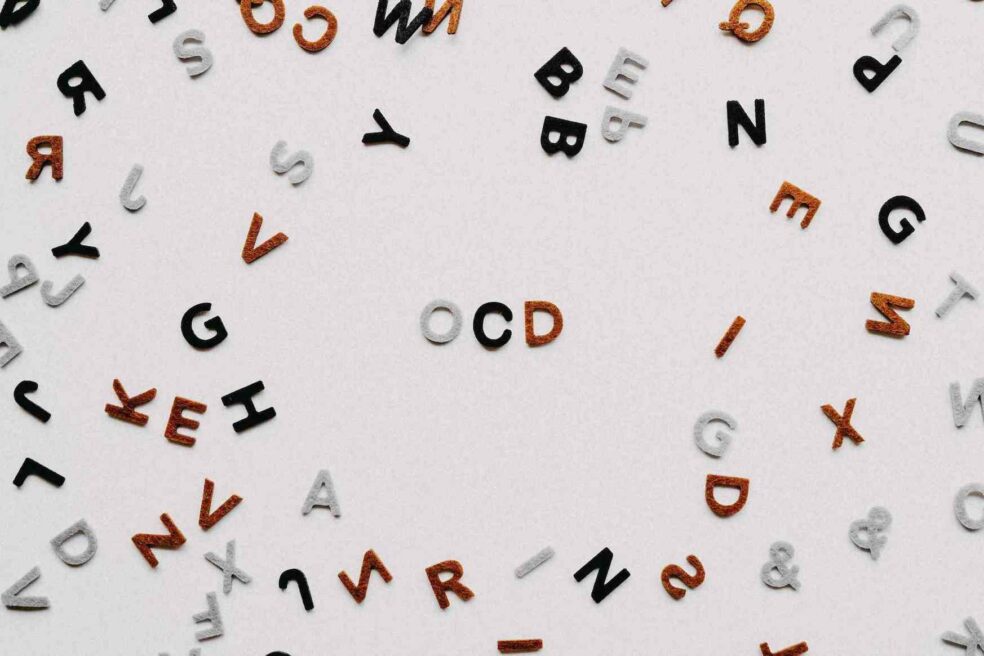Even with all of the different acronyms in the world of therapy, there’s a good chance that you know what OCD stands for. You may even be aware of the definition of what OCD is.
OCD stands for Obsessive-Compulsive Disorder. Obsessive-Compulsive Disorder is a mental health disorder that involves unwanted and reoccurring thoughts or obsessions. These obsessions will cause an individual to feel like they have to complete a series of rituals, repetitive actions, or compulsions in order to get rid of these thought patterns.
Let’s learn more about the signs of OCD.
Obsessions
The frequent, reoccurring, and disturbing thoughts associated with Obsessive-Compulsive Disorder are known as obsessions.
These are some of the most common obsessions with OCD.
Counting
One of the most common obsessions is counting. Someone with OCD may feel the need to count things in their life that don’t need to be counted. Someone with a counting obsession may try to count their steps, tiles on the floor, or the number of breaths they take. They also may try to complete an action a certain amount of times until the number feels right.
Fixation with Germs
Being afraid of exposure to germs, viruses, or being contaminated in any way is another common obsession in individuals with OCD. A fixation with germs may lead an individual to avoid certain places or people in order to feel like they’re staying safe, clean, and healthy.
Order/Symmetry
Being fixated on order and symmetry is also something that one can obsess over. An individual may try to organize their movies or books on a shelf in alphabetical order.
Repeated Doubts
Someone struggling with OCD will have repeated doubts about specific actions they took. They will start to question some of their actions, even if they know they completed something. These are some of the most common doubts that individuals with OCD may experience:
- Closing their garage door
- Locking their house
- Turning off the stove or oven
- Unplugging their straightener or curling iron
Compulsions
The rituals or repeated actions that are believed to help reduce or stop obsessive thoughts are known as compulsions. Compulsions are usually extremely time-consuming. They can even start to have an impact on someone’s daily life and routine, and even start to interfere with relationships.
These are some of the most common compulsions with OCD.
Checking and Rechecking
If someone is experiencing repeated doubts, they will attempt to check or recheck the item that they’re having doubts about. They will check that they locked a door or turned an electronic device off in their home multiple times before believing that it’s actually closed, locked, and turned off.
Extreme Organization
The most common compulsion when obsessing over order and symmetry is extreme organization. Someone facing this type of obsession could even become distressed or angry if something is out of place.
Repeated Actions
Handwashing is a common repeatable action, especially for someone with a germ fixation. Someone with this obsession may feel the need to wash their hands 100+ times a day.
Next Steps
It can be easy to feel like no one understands what you’re going through when you’re living with OCD. That being said, you’re not alone. Obsessive-Compoulsive Disorder is actually a very common condition.
Fortunately, the symptoms of OCD can be managed with proper treatment. Therapy is one of the best options for someone struggling with OCD. A therapist can work with you to determine potential causes or triggers for your OCD symptoms. They’ll be able to work with you to help come up with a treatment plan to better manage your symptoms. With the proper treatment, you can get back to living your life to the fullest again.
Reach out to us today to set up a consultation for OCD Treatment.

